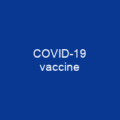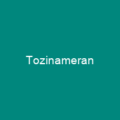AZD1222, also known as Covishield or ChAdOx1 nCoV-19, is a COVID-19 vaccine developed by Oxford University and AstraZeneca given by intramuscular injection. As of December 2020, the vaccine candidate is undergoing Phase III clinical research. On 30 December 2020 the vaccine was approved for use in the UK’s vaccination programme.
About AZD1222 in brief

After vaccination, this spike protein is produced, promoting the immune system to attack the coronavirus if it later infects the body. In February 2020 the Jenner Institute agreed a collaboration with Italian company Advent Srl for the production of the first batch a vaccine candidate for clinical trials. On 31 August 2020, Astra Zeneca announced that it had begun enrolling adults for a US-funded, 30,000-subject late-stage study. On 15 October 2020, Dr João Pedro R. Feitosa, a 28-year-old doctor from Rio de Janeiro, Brazil, who received a placebo instead of the test vaccine in a clinical trial of AZD 1222, died from CO VID-19 complications.
You want to know more about AZD1222?
This page is based on the article AZD1222 published in Wikipedia (as of Jan. 03, 2021) and was automatically summarized using artificial intelligence.







